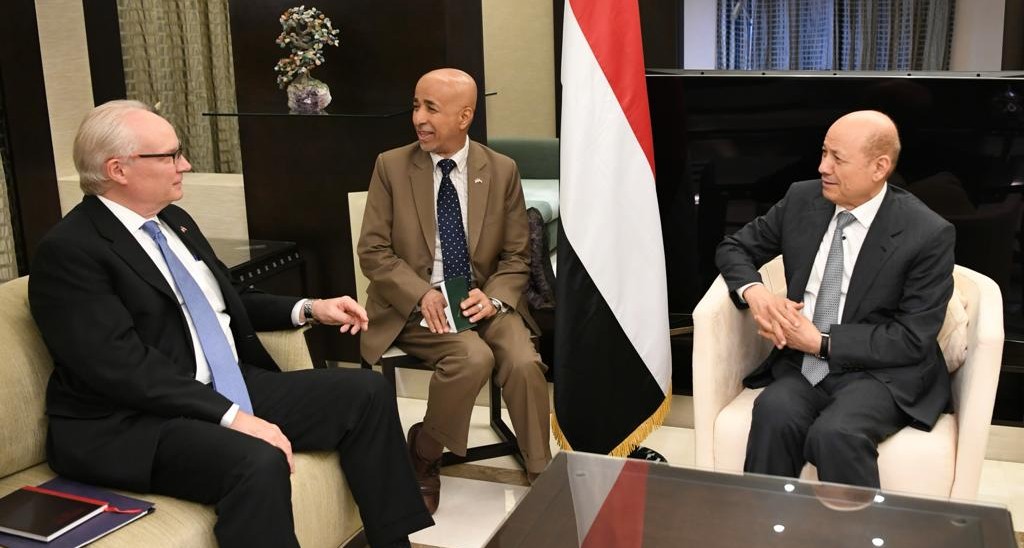In a recent interview with the UAE newspaper The Arab Gulf, Tim Lenderking, the American envoy to Yemen, labeled the issue of salary disbursement as "difficult - impossible - complicated." Paradoxically, while Linderking claims the disbursement is a challenge, he finds it easy to deprive over 1.3 million Yemeni civil servants of their salaries.
Since assuming office in 2021, Linderking has failed to provide a clear explanation for prioritizing this humanitarian crisis with such difficulty. He recently hinted at future consequences without elaborating further. Meanwhile, the Yemeni population, described by the United Nations as facing "the worst humanitarian crisis in history," remains uncertain about their next meal and struggles to survive. Astonishingly, the US State Department even acknowledged that some Yemenis have resorted to eating trees to survive.
Salaries have become a political tool, raising questions about the motives behind Lenderking's reluctance to address the issue. Why does he fear disbursing salaries to over a million Yemeni civil servants, who, in turn, support approximately 10 million individuals hovering on the brink of extreme poverty? Where lies the complexity, impossibility, and difficulty?
Allow us to speculate on behalf of Tim Lenderking. The complexity of the salary disbursement issue lies in depriving Sana'a, the capital city, of achieving a political victory that would bolster its military successes. Sana'a initiated the salaries issue, linking it to negotiation efforts mediated by the UN and Oman. Moreover, Sana'a refused to sign the truce renewal agreement last April 2022. By making Sana'a responsible for resuming salary disbursements, the US administration, which has failed to undermine Sana'a's popularity during over eight years of aggression on Yemen, fears granting it further legitimacy.
Strategically, salary disbursement represents a crucial pressure tactic employed by Sana'a's adversaries to force its surrender. However, a deeper look into history reveals an enduring pattern of Saudi Arabia's subordination of Yemen since the republican rule started in 1962. Yemen and its people are expected to remain economically constrained under this relationship. Any governance system outside this subordination paradigm threatens to alleviate poverty in Yemen. But what steps led to the discontinuation of salary disbursements, and who orchestrated them?
The halt to salary disbursement began when the Central Bank's responsibilities were transferred from Sana'a to Aden, diverting approximately 70% of state revenues to the transferred bank's treasury. Former exiled President Hadi, who was pro-Saudi and later deposed, revealed in an interview with Al-Quds Al-Arabi newspaper on February 2, 2017, that "the step of transferring the bank's responsibilities from Sana'a was under American sponsorship."
Further evidence supporting the premeditated nature of salary cessation is its exclusion from UN-mediated political negotiations. In April 2022, a two-month military truce was agreed upon, focusing on halting combat and facilitating the entry of oil tankers into the Hodeidah port, as well as limited flights from Sana'a airport. However, the truce failed to address the crucial issue of salary disbursement, despite its status as the most pressing humanitarian concern in Yemen.
In early August, Sana'a announced the suspension of negotiations with Saudi Arabia, which had started in May with the arrival of the Saudi ambassador to Sana'a, due to the salary issue. According to Sana'a, Riyadh demanded that salaries be delivered through the Saudi National Bank, a condition rejected by Sana'a, which insisted on using Yemen's oil and gas wealth through the Central Bank of Yemen.
Saudi Arabia and the United States push their Yemeni agents, known as the "Presidency Council" formed in Saudi Arabia, to demand salary disbursement from Sana'a and hold it responsible for the cessation. These agents claim that Sana'a can cover salaries solely from the resources of Hodeidah port, while refusing to disburse salaries from the revenues of approximately seven Yemeni ports under their control. Consequently, Sana'a, after exhausting peaceful options, resorted to a military strike on Al-Dabbah port, halting Yemeni oil and gas exports and conditioning their resumption on allocating resources for salaries. Following the strike, Saudi agents admitted their inability to pay the salaries of employees under their control due to the halt in oil exports, contradicting their earlier claims about Sana'a's capability to disburse salaries solely from Hodeidah port resources.
It is worth noting that even before the prohibition of Yemeni gas and oil exports, the government controlled by Saudi agents failed to pay salaries to employees within the areas that are under the control of Sana'a, constituting about 70% of Yemen's population. This confirms that the cessation of salary disbursement is not merely linked to one party's control over the country's resources; rather, it is an intentional economic policy by the United States and Saudi Arabia to exert pressure on Sana'a and maintain control over Yemen.
In conclusion, the issue of salary disbursement for Yemeni civil servants has become a political card played by various parties involved in the Yemeni conflict. While Tim Lenderking, the American envoy to Yemen, claims the complexity and difficulty of the disbursement, the real motives lie in denying Sana'a a political victory and maintaining control over Yemen's resources. The cessation of salary disbursement was orchestrated through the transfer of the Central Bank's responsibilities from Sana'a to Aden, under American sponsorship. This deliberate move has caused immense suffering and pushed millions of Yemenis into extreme poverty.
The international community must recognize the humanitarian crisis in Yemen and address the issue of salary disbursement as a matter of urgency. Yemeni civil servants deserve to receive their salaries and support their families and communities. The political games played at their expense must be exposed and condemned. Only through a comprehensive and inclusive resolution to the Yemeni conflict can the people of Yemen hope for a brighter future free from deprivation and suffering.







